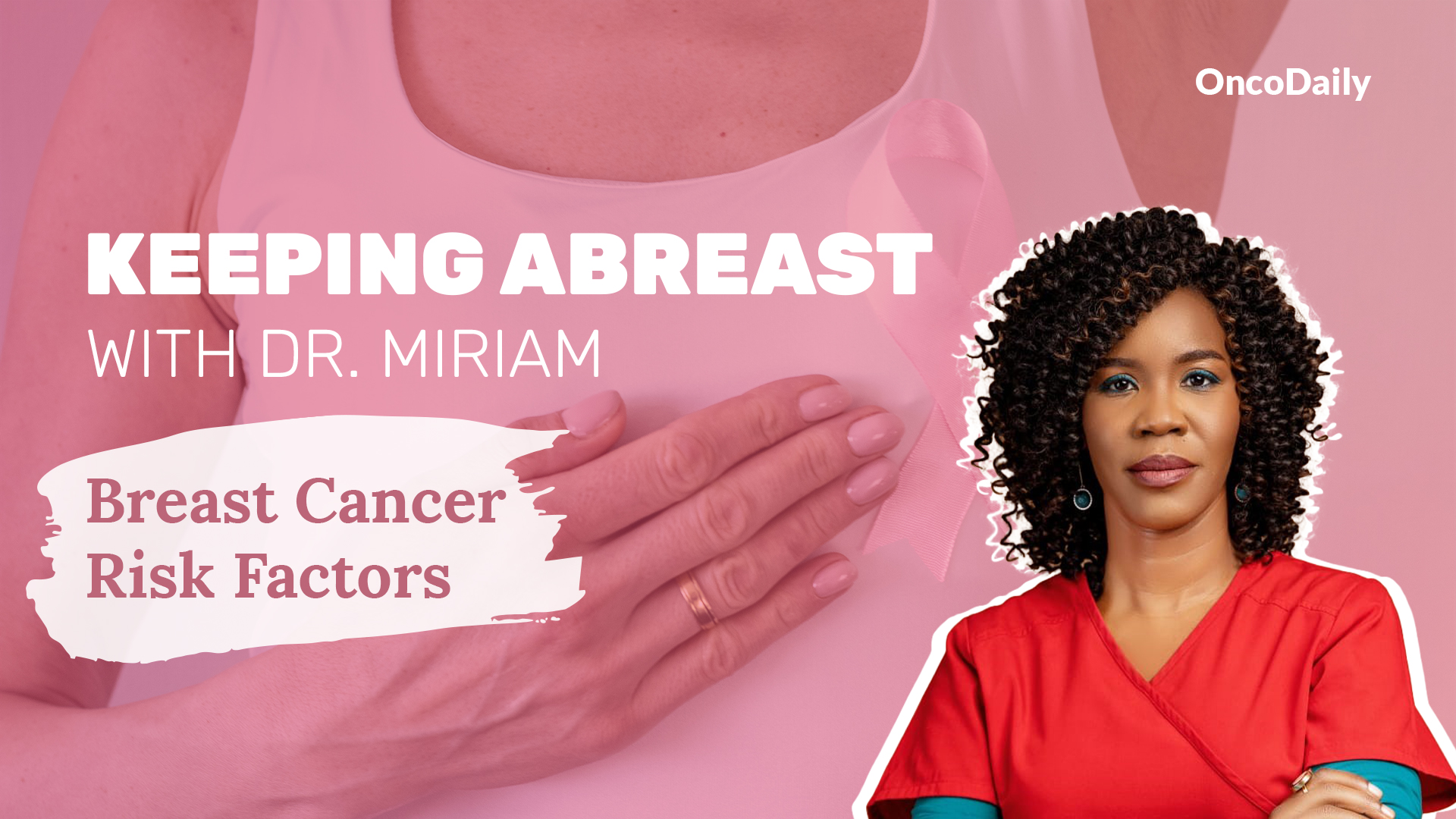Miriam Mutebi, Breast Surgical Oncologist and Assistant Professor in the Department of Surgery at the Aga Khan University Hospital, shared a post on LinkedIn:
“Breast Cancer Risk Factors.
When it comes to breast cancer risk, individuals fall into either average-risk or high-risk categories. These risks can be grouped into two main types:
Non-Modifiable Risk Factors: These are factors beyond your control.
- Being Female and Aging: Being female is the greatest risk factor, and ageing is the biggest demographic risk for breast cancer.
- Reproductive History: Early menstruation (before age 12) or late menopause (after age 55) increases estrogen exposure, which can elevate risk.
- Family History: A family history of breast or ovarian cancer, especially in a first-degree relative (mother, sister, or daughter), increases your risk. Breast cancer in male relatives also raises your risk.
- Personal History of Breast Conditions: A history of breast cancer or certain noncancerous breast diseases with abnormal cells (e.g., atypia) increases risk.
- Previous Radiation Therapy: Women treated with radiation therapy for blood cancers before age 30 have a higher likelihood of developing breast cancer later in life.
- Dense Breast Tissue: Having dense breasts, where glandular tissue outweighs fatty tissue, increases risk and is identifiable through mammograms.
- Genetic Mutations: Inherited mutations in genes like BRCA1 and BRCA2 are significant risk factors.
Modifiable Risk Factors: You can change These lifestyle factors to reduce your risk.
- Physical Inactivity: Staying active can lower your risk.
- Excess Weight Post-Menopause: Being overweight or obese after menopause is linked to higher breast cancer risk.
- Hormone Use: Hormone replacement therapy (HRT) during menopause and some hormonal contraceptives may increase risk. Discuss these with your clinician to weigh the benefits and risks.
- Reproductive History: Having your first pregnancy after 30, not breastfeeding, or never having children can increase your risk.
- Alcohol Consumption: Even small amounts of alcohol raise breast cancer risk for women.
PS: Having risk factors doesn’t mean you’ll get breast cancer, and not having them doesn’t guarantee you won’t. In our practice, we often diagnose women with breast cancer who, despite protective factors like early childbirth and breastfeeding, still develop the disease.
While modifying your risk factors can help, it doesn’t eliminate risk. Regular screening is crucial, especially as we age—the most significant early detection factor.
Bottomline. Know your risk. Are you high-risk? Take action today.”

More posts featuring Miriam Mutebi.
Miriam Mutebi is a Breast Surgical Oncologist and Assistant Professor in the Department of Surgery at the Aga Khan University Hospital in Nairobi, Kenya.
She is the President of the African Organization for Research and Training in Cancer (AORTIC), and past president for Kenya Society of Hematology and Oncology (KESHO) and on the Board of Directors of the Union for International Cancer Control (UICC).
She is the co-founder of the Pan African Women’s Association of Surgeons and is part of the Kenya Association of Women Surgeons.
She is an avid supporter for the education and support for women, especially in surgery and she aims to provide mentorship for women in surgery and to improve women’s health and surgical care in Africa. She is currently pursuing a pilot’s license in order to extend breast care services to marginalized areas.
